Ética e inteligencia artificial en educación: un análisis bibliométrico de tendencias emergentes y desafíos
| Issue | Vol. 9 Núm. 1 (2025): Ciencia y Educación |
| DOI | |
| Publicado | abr. 24, 2025 |
|
Estadísticas |
Resumen
El presente es un estudio descriptivo y retrospectivo basado en un análisis bibliométrico de las publicaciones científicas sobre la intersección de la ética, la inteligencia artificial (IA) y la educación. Se pretende proporcionar una visión del estado actual de la investigación, identificar brechas y sugerir direcciones futuras. El estudio abarca publicaciones desde 2020 hasta julio de 2024. Se analizaron 688 documentos de la base de datos Scopus para identificar tendencias de publicación, revistas líderes, temas emergentes y patrones de colaboración. Los resultados revelan un rápido crecimiento del campo, con un aumento continuo que se acelera a partir de 2022 y alcanza su punto más alto en 2024. Los temas centrales en esta intersección son la privacidad, la equidad y la transparencia en la integración de IA en contextos educativos. Se observa una fuerte tendencia hacia la colaboración interdisciplinaria, con un 78% de los documentos escritos en coautoría y se identificó una diversidad de enfoques metodológicos que va, desde estudios teóricos hasta investigaciones empíricas y revisiones sistemáticas. La intersección de estos conceptos ha tenido un impacto significativo en el discurso académico. Son necesarios más estudios longitudinales y enfoques participativos en el diseño e implementación de sistemas de IA en la educación.
Akgun, S., & Greenhow, C. (2022). Artificial intelligence in education: Addressing ethical challenges in K-12 settings. AI and Ethics, 2(3), 431-440. https://doi.org/10.1007/s43681-021-00096-7
Amato, L. M., & Schoettle, C. (2023). Using artificial intelligence ethically and responsibly: Best practices in higher education. In Creative AI tools and ethical implications in teaching and learning (pp. 19-31). IGI Global.
Báez-Vizcaíno, K. (2024a). Exploring epistemic injustice: A bibliometric analysis of academic production and its evolution. Pub Res Q, 40, 11-29. https://doi.org/10.1007/s12109-023-09972-y
Báez-Vizcaíno, K. (2024b). Revisión bibliométrica de la injusticia epistémica en la educación a través de WoS y Scopus. Revista Científica en Ciencias Sociales, 6. https://doi.org/10.53732/rccsociales/e601108
Bertoli-Barsotti, L., & Lando, T. (2017). The h-index as an almost-exact function of some basic statistics. Scientometrics, 113(2), 1209–1228. https://doi.org/10.1007/s11192-017-2508-6
Bond, M., Khosravi, H., De Laat, M., Bergdahl, N., Negrea, V., Oxley, E., Pham, P., Chong, S. W., & Siemens, G. (2024). A meta systematic review of artificial intelligence in higher education: A call for increased ethics, collaboration, and rigour. International Journal of Educational Technology in Higher Education, 21(1), 4.
Bornmann, L., & Daniel, H.D. (2007). What do we know about the h index? Journal of the American Society for Information Science and Technology, 58(1), 21–25. https://doi.org/10.1002/asi.20609
Cascella, M., Montomoli, J., Bellini, V., & Bignami, E. (2023). Evaluating the Feasibility of ChatGPT in Healthcare: An Analysis of Multiple Clinical and Research Scenarios. Journal of Medical Systems, 47(1), 33 https://doi.org/10.1007/s10916-023-01925-4
Chu, J., Xi, L., Zhang, Q., & Lin, R. (2022). Research on ethical issues of artificial intelligence in education. In Lecture Notes in Educational Technology (pp. 101-108). Springer.
Cotton, D. R. E., Cotton, P. A., & Shipway, J. R. (2024). Chatting and cheating: Ensuring academic integrity in the era of ChatGPT. Innovations in Education and Teaching International, 61(2), 228-239. https://doi.org/10.1080/14703297.2023.2190148
Durieux, V., & Gevenois, P. A. (2010). Bibliometric indicators: quality measurements of scientific publication. Radiology, 255(2), 342–351. https://doi.org/10.1148/radiol.09090626
Dwivedi, Y. K., Kshetri, N., Hughes, L., Slade, E. L., Jeyaraj, A., Kar, A. K., & Albashrawi, M. A. (2023). “So what if ChatGPT wrote it?” Multidisciplinary perspectives on opportunities, challenges and implications of generative conversational AI for research, practice and policy. International Journal of Information Management, 71, 102642. https://doi.org/10.1016/j.ijinfomgt.2023.102642
Fenwick, T., & Edwards, R. (2016). Exploring the impact of digital technologies on professional responsibilities and education. European Educational Research Journal, 15(1), 117-131. https://doi.org/10.1177/1474904115608387
Franco D’Souza, R., Mathew, M., Mishra, V., & Surapaneni, K. M. (2024). Twelve tips for addressing ethical concerns in the implementation of artificial intelligence in medical education. Medical Education Online, 29(1), 2330250.
Gartner, S., & Krasna, M. (2023). Artificial intelligence in education - Ethical framework. 12th Mediterranean Conference on Embedded Computing, MECO 2023.
Ghotbi, N. (2024). Ethics of artificial intelligence in academic research and education. In Springer International Handbooks of Education (pp. 1355-1366). Springer.
Haque, M. A., & Li, S. (2024). Exploring ChatGPT and its impact on society. https://doi.org/10.48550/arXiv.2403.14643
Hirsch, J. E. (2005). An index to quantify an individual's scientific research output. Proceedings of the National Academy of Sciences, 102(46), 16569-16572. https://doi.org/10.1073/pnas.0507655102
Holmes, W., Bektik, D., Whitelock, D., Woolf, B., Rosé, C., Martínez-Maldonado, R., Hoppe, H., Luckin, R., Mavrikis, M., & Porayska-Pomsta, K. (2018). Ethics in AIED: Who cares? In J. M. Trujillo Torres (Ed.), Artificial intelligence in education (pp. 551-553). Springer International Publishing.
Johri, A., Lindsay, E., & Qadir, J. (2023). Ethical concerns and responsible use of generative artificial intelligence in engineering education. SEFI 2023 - 51st Annual Conference of the European Society for Engineering Education: Engineering Education for Sustainability, Proceedings, 2244-2253.
Kataria, K. (2023). AI-powered learning: The future of education. International Journal of Advanced Research, 11(September), 199-203. https://doi.org/10.21474/IJAR01/17520
Marín, V. I., & Tur, G. (2023). La privacidad de los datos en Tecnología Educativa: resultados de una revisión de alcance. Edutec. Revista Electrónica de Tecnología Educativa, (83), 7. https://doi.org/10.21556/edutec.2023.83.2701
Memarian, B., & Doleck, T. (2023). Fairness, accountability, transparency, and ethics (FATE) in artificial intelligence (AI) and higher education: A systematic review. Computers and Education: Artificial Intelligence, 5, 100152.
Montezuma, J. R. M., & Chong, M. (2024). Generative artificial intelligence impact on education and industry: An ethical dimension. EDUNINE 2024 - 8th IEEE World Engineering Education Conference: Empowering Engineering Education: Breaking Barriers through Research and Innovation, Proceedings.
Munoz-Mandujano, M., Corona, M. A. I., Diaz, J. A. V., Corona, D. O. I., Lopez Martinez, V., & Sanchez, G. P. (2023). Artificial intelligence and classrooms: Ethics in the use of artificial intelligence in education. Proceedings - JICV 2023: 13th International Conference on Virtual Campus.
Naqvi, A. (2020). Artificial intelligence for audit, forensic accounting, and valuation: A strategic perspective. Wiley. https://doi.org/10.1002/9781119601906
Page, M. J., McKenzie, J. E., Bossuyt, P. M., Boutron, I., Hoffmann, T. C., Mulrow, C. D., Shamseer, L., Tetzlaff, J. M., & Moher, D. (2021). Updating guidance for reporting systematic reviews: Development of the PRISMA 2020 statement. Journal of Clinical Epidemiology, 134(1), 103-112. https://doi.org/10.1016/j.jclinepi.2021.02.003
Patki, M., Sanadi, S., Jadhav, S., Musale, A., & Kadam, K. (2023). Ethical implications of utilizing artificial intelligence in education for assessment. 31st International Conference on Computers in Education, ICCE 2023 - Proceedings, 2, 600-608.
Pawar, M., Rai, R. D., & Rajendran, R. (2023). Ethical challenges of artificial intelligence in education: Achieving learner centricity with respect to learner autonomy. 31st International Conference on Computers in Education, ICCE 2023 - Proceedings, 2, 584-589.
Pranckute, R. (2021). Web of Science (WoS) and Scopus: The titans of bibliographic information in today’s academic world. Publications, 9(1), 12. https://doi.org/10.3390/publications9010012
Ray, P. P. (2023). ChatGPT: A comprehensive review on background, applications, key challenges, bias, ethics, limitations and future scope. Internet of Things and Cyber-Physical Systems, 3(1). https://doi.org/10.1016/j.iotcps.2023.04.003
Regan, P., & Jesse, J. (2019). Ethical challenges of edtech, big data and personalized learning: Twenty-first century student sorting and tracking. Ethics and Information Technology, 21(3), 167-179. https://doi.org/10.1007/s10676-018-9492-2
Santana-Soriano, E. (2023). Ética y filosofía de la inteligencia artificial: debates actuales. La Barca de Teseo, 1(1), 47-64. https://doi.org/10.61780/bdet.v1i1.5
Sanusi, I. T., & Olaleye, S. A. (2022). An insight into cultural competence and ethics in K-12 artificial intelligence education. IEEE Global Engineering Education Conference, EDUCON, 2022-March, 790-794.
Sijing, L., & Lan, W. (2018). Artificial intelligence education ethical problems and solutions. 13th International Conference on Computer Science and Education, ICCSE 2018, 155-158.
Tlili, A., Shehata, B., Adarkwah, M. A., Bozkurt, A., Hickey, D. T., Huang, R., & Agyemang, B. (2023). What if the devil is my guardian angel: ChatGPT as a case study of using chatbots in education. Smart Learning Environments, 10(1), Article 15. https://doi.org/10.1186/s40561-023-00237-x
Tsai, S., Chen, C., Shiao, Y., Ciou, J., & Wu, T. (2020). Precision education with statistical learning and deep learning: A case study in Taiwan. International Journal of Educational Technology in Higher Education, 17(1), 1-13. https://doi.org/10.1186/s41239-020-00186-2
Ungerer, L., & Slade, S. (2022). Ethical considerations of artificial intelligence in learning analytics in distance education contexts. In SpringerBriefs in Open and Distance Education (pp. 105-120). Springer.
Zawacki-Richter, O., Marín, M., Bond, V., & Gouverneur, F. (2019). Systematic review of research on artificial intelligence applications in higher education – Where are the educators? International Journal of Educational Technology in Higher Education, 16(1), 1-27. https://doi.org/10.1186/s41239-019-0171-0
Zemel, R., Wu, Y., Swersky, K., Pitassi, T., & Dwork, C. (2013). Learning fair representations. International Conference on Machine Learning. 28, 325-333. Atlanta: PMLR.
Zhai, C., Wibowo, S., & Li, L. D. (2023). Ethical and privacy concerns in artificial intelligence dialogue systems: Do students in higher education really care about them. 31st International Conference on Computers in Education, ICCE 2023 - Proceedings, 2, 857-859.
Zimmerman, B. J., & Schunk, D. H. (2019). Self-regulated learning and academic achievement: Theoretical perspectives. Educational Psychology Review.
- Resumen visto - 953 veces
- PDF descargado - 300 veces
- HTML descargado - 380 veces
- XML descargado - 105 veces
- EPUB descargado - 116 veces
Descargas
Licencia
Copyright
© Ciencia y Educación, 2025
Afiliaciones
Edwin Santana-Soriano
Instituto Superior de Formación Docente Salomé Ureña, República Dominicana.



